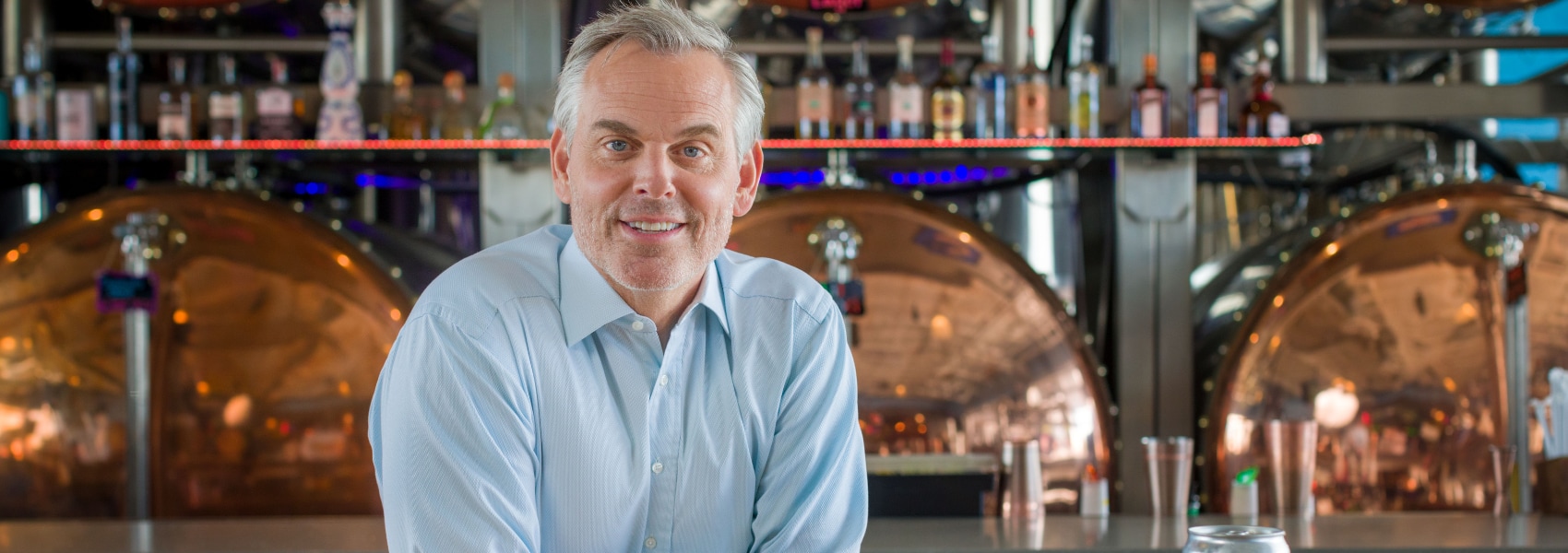Torrance Memorial Team Delivers Game-Changing Care for Sportscaster Colin Cowherd

Written by Lisa Buffington
As host of The Herd, a national sports talk program on Fox Sports, Colin Cowherd interviews some of the biggest-name athletes in professional sports. His experience interviewing guests, watching games and working with his colleagues to produce the show has shown him the importance of teamwork.
But when Cowherd had a medical emergency on February 6, 2021, the night before the Super Bowl, he experienced the benefits of teamwork in an entirely new way. Torrance Memorial Medical Center experts worked together to deliver the lifesaving care he needed that evening.
My wife and I were at a restaurant, and I suddenly felt this sharp pain under my right pectoral muscle, says Cowherd. It felt like someone stuck a knife in me.
He called his friend Michael Zislis, founder and owner of the Zislis Group, who is on the Torrance Memorial Medical Center Foundation board of directors. Mike showed up in his car within five minutes, and after running a few red lights, we got to Torrance Memorial 15 minutes later.
A Team Approach to Care
When Cowherd arrived at the Torrance Memorial emergency department, his care team began treating his pain and running tests to find its source. I thought I had COVID, but those tests came back negative, says Cowherd. After taking some X-rays, my doctors found a couple small blood clots in my right lung.
A blood clot in the lung, also known as a pulmonary embolism, is a potentially life-threatening condition that requires emergency treatment. After confirming the diagnosis, Torrance Memorial's Pulmonary Embolism Response Team (PERT) jumped into action, giving Cowherd an injectable medication to treat the clot. Because Cowherd's clots were small, he didn't need surgical treatment to remove them.
The medication Colin received helped activate his body's natural clot-dissolving mechanisms so it could gradually break down the clot over the next several weeks, says Valente Ramos, MD, the Torrance Memorial hospitalist and internal medicine specialist who coordinated Cowherd's inpatient care. Colin spent two nights in the hospital for observation, and we referred him to a pulmonologist, a hematologist and an infectious disease specialist to try to find the cause of the blood clot.
Trusting Torrance Memorial for Life's Medical Moments
Thirty-six hours later, Cowherd was discharged from the hospital. Although he watched the Super Bowl from his hospital room, he was disappointed he couldn't do his usual post-game broadcast for his fans. Fortunately, he was able to get back on the air two days later and returned to his normal exercise routine within a few weeks.
After numerous blood tests and several follow-up visits, Cowherd's health care team determined he didn't have any serious medical issues that would increase his risk of future blood clots. He hasn't had any problems or symptoms since and is grateful for the successful treatment and aftercare he received.
Having access to this level of care and expertise in the South Bay is critical to the health of our community, says Eric Nakkim, MD, Torrance Memorial emergency medicine physician. Our Pulmonary Embolism Response Team reviews each pulmonary embolism case and helps develop an evidence-based treatment plan based on each patient's unique symptoms. As a result, our patients receive the care they need more quickly, which leads to better outcomes.
Although Cowherd is healthy and describes himself as someone who goes to the doctor reluctantly, he trusts Torrance Memorial for all of life's medical moments from stitches to bloodwork to routine screenings.
I do my best to stay fit and active and try to be self-reliant when it comes to my health. But when I needed help, many people at Torrance Memorial were there for me, says Cowherd. No one goes to the doctor or hospital without having some anxiety. When I was in a scary situation, I was really impressed by the quality of the doctors, their bedside manner and how much they cared.